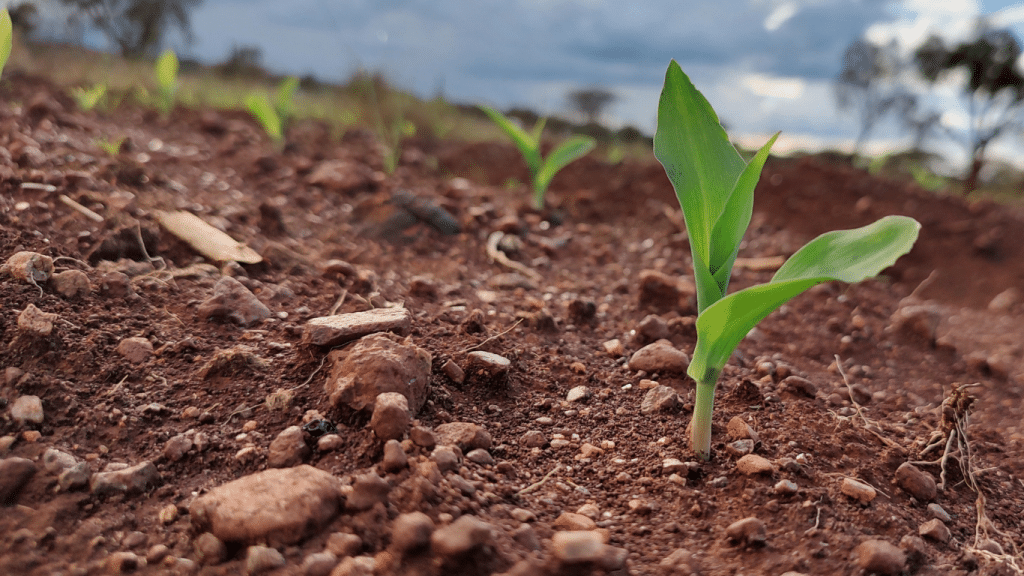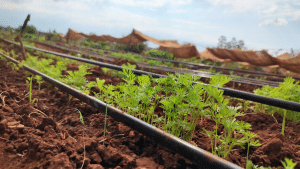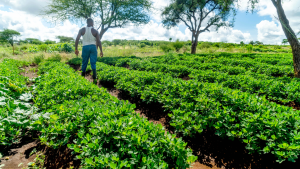
In an era marked by environmental degradation and climate uncertainty, the imperative to transition towards sustainable agricultural practices has never been more pressing. At the forefront of this movement are organic farms. Let us delve into the myriad ways in which this organic integrity contributes to the health of the planet and its inhabitants.
Introduction
Organic farming is a holistic agricultural system that prioritises the health of ecosystems, soils, and people. By avoiding the use of synthetic chemicals, organic farmers maintain the integrity of their land, contributing to a cycle of sustainability that benefits both the environment and the consumer. This approach is grounded in the understanding that a healthy environment is foundational to producing nutritious and abundant food.
The principle of reduced chemical use in organic farming is not just about avoiding synthetic pesticides and fertilisers; it’s about adopting a farming philosophy that respects the complex relationships within ecosystems. It protects ecosystems, improves soil health, and enhances biodiversity.
1. Combatting Climate Change: Organic Farming's Significant Impact on Climate Change
Organic farming practices, characterised by avoidance of chemical inputs and emphasis on natural fertilisers and pest management, play a pivotal role in mitigating climate change. By eschewing synthetic fertilisers and pesticides, organic farms reduce their carbon footprint and mitigate greenhouse gas emissions associated with conventional agriculture. Moreover, the adoption of agroecological principles, such as crop rotation, cover cropping and composting, enhances soil health and sequesters carbon, contributing to the reversal of climate change.
2. Preserving Biodiversity
The embrace of avoidance of chemical use by organic farms fosters biodiversity conservation, a fundamental pillar of ecological resilience. Unlike conventional monocultures, which often rely on chemical inputs to suppress pests and weeds, organic farming practices prioritise biodiversity through techniques such as crop diversification and habitat preservation. This diversity not only supports a plethora of plant and animal species but also enhances ecosystem services such as pollination, pest control, and soil fertility.
3. Protecting Water Resources
Chemical-intensive agriculture poses a significant threat to water quality and availability, as synthetic fertilisers and pesticides leach into water bodies, contaminating aquatic ecosystems and compromising human health. In contrast, organic farming practices prioritise the conservation of water resources by avoiding chemical inputs and employing water-efficient irrigation methods. By reducing pollution and promoting soil health, organic farms safeguard water quality and contribute to the sustainable management of freshwater resources.
Healthy soils are the bedrock of agricultural sustainability, yet conventional farming practices often degrade soil fertility and structure through intensive tillage and chemical dependence. Organic farms, by reducing chemical use and adopting soil-building practices such as cover cropping and composting, nurture the vitality of the soil ecosystem. This enhances soil structure, increases water retention, and fosters microbial diversity, thereby promoting long-term agricultural productivity and resilience in the face of climate change.
5. The Contribution of Organic Farming to Environmental Sustainability
By using water more sustainably and enhancing biodiversity, organic farming lays the groundwork for long-term environmental sustainability. This section explores how organic farming practices lead to more efficient water use and the preservation of ecosystem services.
6. Promotes Social Justice
Beyond environmental benefits, the embrace of avoidance of chemical use by organic farms contributes to broader social justice objectives. Conventional agricultural practices disproportionately impact marginalised communities and frontline agricultural workers, exposing them to hazardous chemicals and perpetuating social inequities. In contrast, organic farming prioritises the health and well-being of farmers and communities by minimising exposure to harmful substances and fostering equitable access to land and resources. By championing fair labour practices and community empowerment, organic farms exemplify a model of agriculture rooted in principles of justice.
7. The Synergy Between Organic Farming and Climate Justice
Organic farming plays a crucial role in supporting fair trade and building climate resilience in vulnerable communities. The synergy between organic farming and climate justice underscores a profound connection between sustainable agricultural practices and equitable outcomes for vulnerable communities. Organic farming not only mitigates environmental degradation but also fosters fair trade and builds resilience against the impacts of climate change. By embracing organic methods, smallholder farmers can access markets that prioritise ethical production, ensuring fair compensation for their labour and fostering economic stability. Moreover, organic farming’s emphasis on soil health, biodiversity conservation, and avoidance of chemical use equips communities with the tools to adapt to a changing climate, safeguarding food security and livelihoods. This intersection underscores the transformative potential of organic farming in addressing environmental issues while promoting social equity and climate justice on a global scale.
Organic Farming and Environmental-Related Sustainable Development Goals (SDGs)
Organic farming directly contributes to several key SDGs, including climate action, life on land, and clean water and sanitation.
From eradicating poverty and hunger to promoting responsible consumption and production, the ethos of avoidance of chemical use embodied by organic farms contributes to a holistic vision of environmental sustainability and social justice.
The Future of Farming: Organic Practices and Their Expansion
The demand for organic produce is on the rise, signalling a shift towards more sustainable agricultural practices worldwide. The implications of this trend for the planet continue to increase the potential for organic farming to become the future of agriculture.
In conclusion, the environmental impact of avoidance of chemical use in organic farming transcends mere agricultural practices, embodying a paradigm shift towards regenerative and inclusive approaches to food production. By embracing the principles of organic integrity, we can cultivate a healthier planet for future generations, one harvest at a time.






